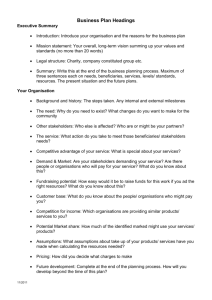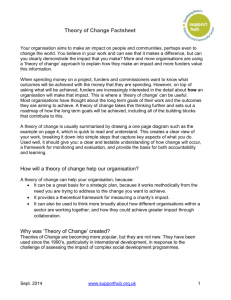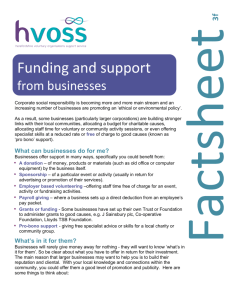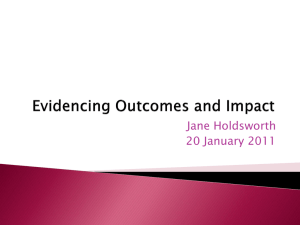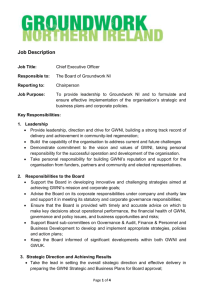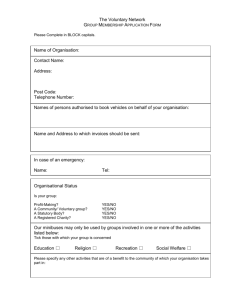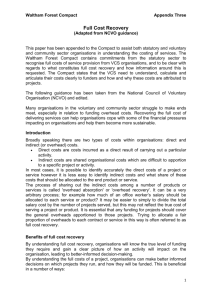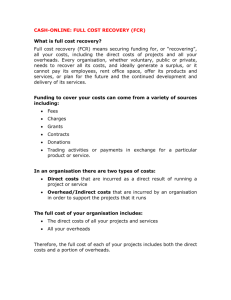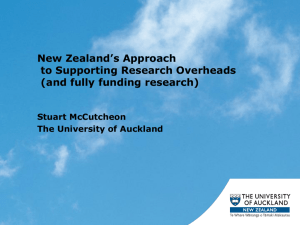Full cost recovery - Merton Voluntary Service Council
advertisement
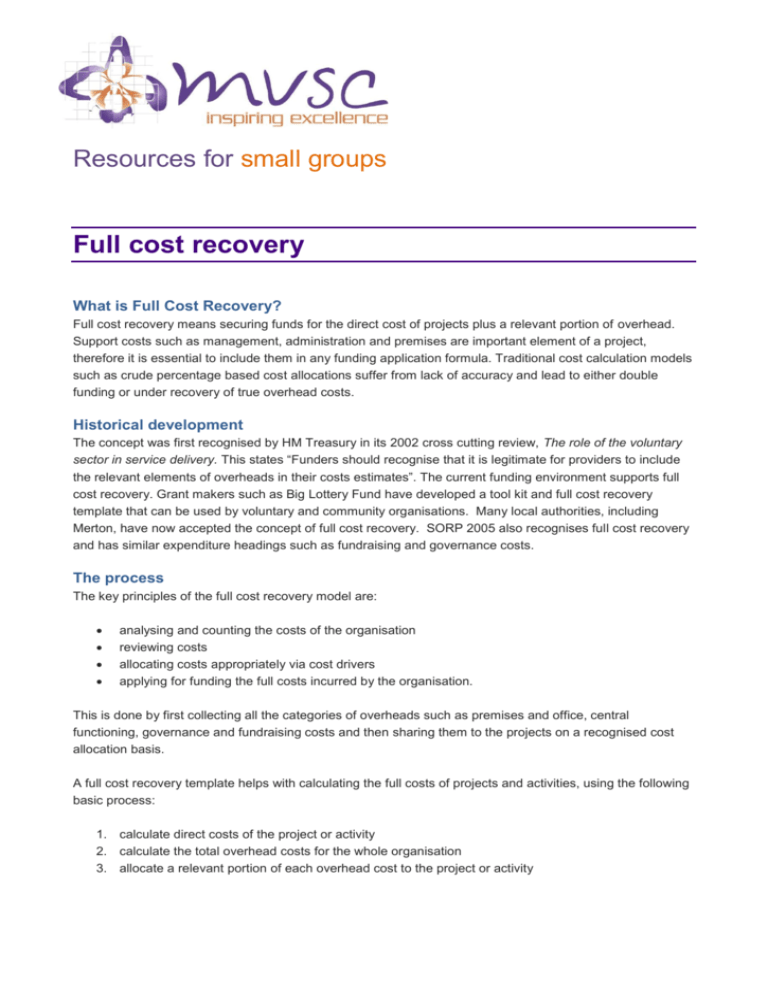
Resources for small groups Full cost recovery What is Full Cost Recovery? Full cost recovery means securing funds for the direct cost of projects plus a relevant portion of overhead. Support costs such as management, administration and premises are important element of a project, therefore it is essential to include them in any funding application formula. Traditional cost calculation models such as crude percentage based cost allocations suffer from lack of accuracy and lead to either double funding or under recovery of true overhead costs. Historical development The concept was first recognised by HM Treasury in its 2002 cross cutting review, The role of the voluntary sector in service delivery. This states “Funders should recognise that it is legitimate for providers to include the relevant elements of overheads in their costs estimates”. The current funding environment supports full cost recovery. Grant makers such as Big Lottery Fund have developed a tool kit and full cost recovery template that can be used by voluntary and community organisations. Many local authorities, including Merton, have now accepted the concept of full cost recovery. SORP 2005 also recognises full cost recovery and has similar expenditure headings such as fundraising and governance costs. The process The key principles of the full cost recovery model are: analysing and counting the costs of the organisation reviewing costs allocating costs appropriately via cost drivers applying for funding the full costs incurred by the organisation. This is done by first collecting all the categories of overheads such as premises and office, central functioning, governance and fundraising costs and then sharing them to the projects on a recognised cost allocation basis. A full cost recovery template helps with calculating the full costs of projects and activities, using the following basic process: 1. calculate direct costs of the project or activity 2. calculate the total overhead costs for the whole organisation 3. allocate a relevant portion of each overhead cost to the project or activity Challenges Many funders do not understand the legitimacy and importance of full cost recovery and many voluntary and community organisations have yet to establish an effective cost allocation system for their services. Sometimes funders are reluctant to contribute towards indirect costs. Funders have specific goals and areas of priority and overhead funding is not one of these. Opportunities Setting up and maintaining a full cost recovery system will increase the sustainability of an organisation. Therefore it is important to know the full cost of a project before applying for grant or bidding for a service contract. Lack of appreciation of this concept will lead to poor decision making and underperformance by the entity. Glossary Overhead Costs: Overheads are the costs of activities which provide indirect support to project. They are needed to support and administer projects or activities. They relate to the whole organisation since they cover all projects and generally do not relate specifically to one project. Template: A tool to help third sector organisations calculate the full cost of a particular project or service including both direct costs and relevant portion of overheads. Cost allocation: Allocating your costs simply means dividing or splitting on a reasonable basis the costs that are shared among different people or different projects. To do this you need to determine the “driver” of each type of cost, i.e. the factor(s) which affect whether it increases or decreases. For example headcount (or number of staff) is a common cost driver for allocating premises and office costs. _____________________________________________________________________________ 020 8685 1771 www.mertonconnected.co.uk info@mvsc.co.uk Merton Voluntary Service Council, Vestry Hall, London Road, Mitcham, CR4 3UD Registered Charity (No. 1085867) and Company Limited by Guarantee (No. 4164949)

